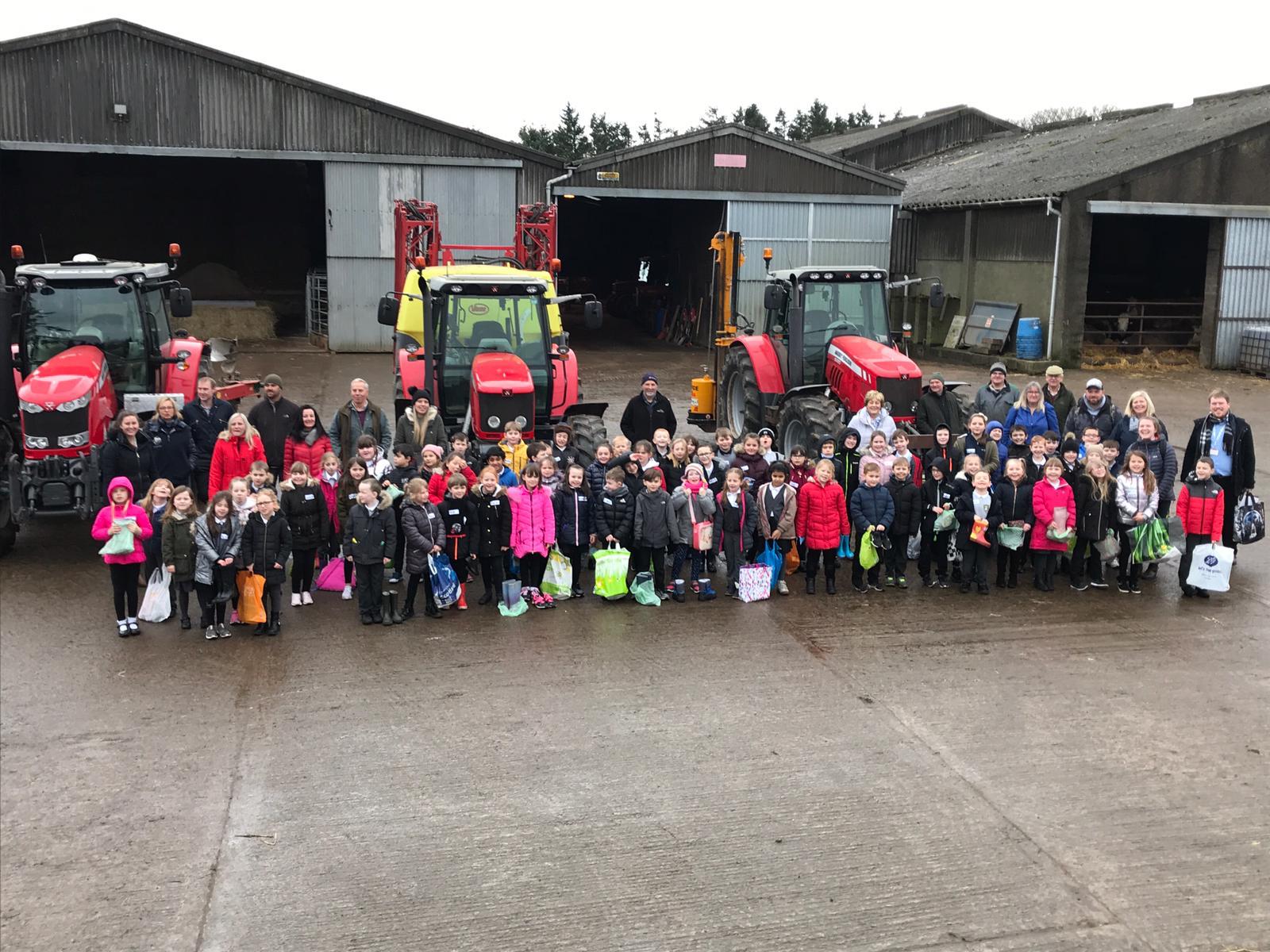Growing up on a farm, you take for granted what people do and don’t know about the agricultural industry – I knew all about birth (well the cow and sheep version), what bread is made from, why cows have tags and most importantly why you should never speak when the weather comes on the TV.
To me it all seemed like basic stuff everyone should know, but the reality is only a small proportion of our society grow up with fundamental knowledge of how their food is produced, or how the countryside is cared for.
The UK has a population of 66.2 million, of that, only four million are employed within the agricultural industry and, of these, only 126,000 are known to be farmers.
Our industry contributes to a very small proportion of the UK population BUT farmers provide over 60% of the food consumed in the UK and use 69% of the UK’s land.
Farming is the bedrock of the UK’s largest manufacturing sector, food and drink which contributes £113 billion to the country’s economy. My belief is that and we need to do as much as we can to share our stories with future generations and to showcase all that our industry does.
We need to start from the bottom to educate children and young people on real farming. It’s this generation that we can educate correctly about farming and to ensure they are not being taught the false and negative publicity the industry is currently facings. Within the UK we have several excellent organisations and charities to help do this.
I have recently joined the Royal Northern Countryside Initiative (RNCI) committee, a charity that provides free, bespoke education to children aged between 3-18 years old throughout Moray, Aberdeenshire and Aberdeen City. The RNCI was established in 1997 by a group of North East farmers and industry influencers to bridge the gap between education of young children and agriculture. The RNCI has grown and formed links between the Royal Highland Education Trust (RHET) and the Royal Northern Agricultural Society (RNAS), together with the participation of several leading local agribusinesses.
Since the start of the 2018/19 academic year, the RNCI has so far interacted with over 7,000 children within Moray, Aberdeenshire and Aberdeen City and the committee predict to reach a record breaking 12,000 by the end of the school year. The charity achieves this by working alongside volunteers to provide free farm visits, classroom talks and demonstrations in their one of a kind ‘countryside classroom on wheels’ (also knows as the CCOW) as well as undertaking many other functions such as the coordination of farm workshops and agricultural/careers events linking young people and the rural sector.
One of the key events for the RNCI each year is the Royal Northern Spring Show and this year 346 primary pupils attended from 13 different schools. I had the privilege of showing 15 of these children round the show and had lots and lots of questions from the youngsters from “why are the lambs different colours”, “how much is that machine worth” and “why do some of the gates have signs saying semen tested on them” …..
These children were fascinated and so excited to get the opportunity to experience our industry and questions that to me were obvious (and probably have been from a very young age); but they were questions these children had never had the chance to ask before.
A famer’s job role can fall into numerous categories including; a vet, scientist, nutritionist, handyman, mechanic, cleaner, bookkeeper, caretaker, marketer and teacher, so agriculture is probably one of the most “qualified” industries we have.
Whether it’s a day or your time helping to volunteer and take children round events such as the Spring Show, visiting a school for half an hour to give a classroom talk or hosting a farm visit, we need more people from the industry to start getting involved and share their skills, knowledge and talent.
Children love to hear and see first-hand from the farmers and one visit to a farm will have a lasting affect on many of these youngsters, who may not get another opportunity to see the industry without charities and organisations such as RNCI, RHET and LEAF. So, be proactive not reactive and start helping to educate our future generation.

